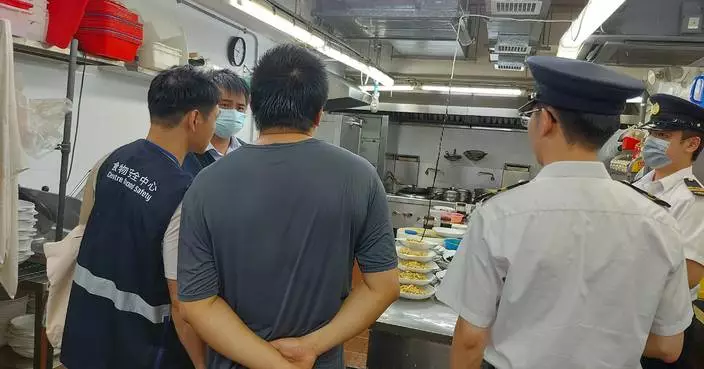Housing Authority Revises Vacant Flat Refurbishment Allowance Scheme
The following is issued on behalf of the Hong Kong Housing Authority:
The Hong Kong Housing Authority (HA)'s Subsidised Housing Committee (SHC) endorsed today (August 27) a proposal to revise the scope and amount of the Vacant Flat Refurbishment Allowance (VFRA).
The revised allowance scheme will take effect in the fourth quarter of 2024. Under the new scheme, the scope of the VFRA will be expanded to all vacant units regardless of the age of the property. If prospective tenants choose to participate in the scheme, an allowance equivalent to a standard 3-month rent will be provided.
A spokesman for the HA said the VFRA aims at providing all prospective tenants of public rental housing (PRH) flats with an option for a one-off cash allowance to supplement their own renovation. With more PRH tenants purchasing subsidised sale flats and the Housing Department (HD)'s stepped-up efforts to combat tenancy abuse of PRH flats, the HD will need to deal with more vacant flats in the future. The revised VFRA Scheme enables the HD and its refurbishment contractors to reallocate resources more effectively to meet the challenge in dealing with the increasing number of vacant flats in the future. Prospective tenants can also use the allowance flexibly to make arrangements that better suit their families' needs.
Under the current arrangement, prospective tenants who have chosen the VFRA should handle (1) painting and related works, and (2) minor repairs (e.g. repair kitchen/toilet/balcony doors, frames and ironmongeries) on their own; and assume the maintenance responsibility of the minor repairs within one year after receiving the allowance. Given the increasing trend in choosing the VFRA, while many tenants expressed that they have certain difficulty in arranging the minor repairs on their own within the one year period, which may lead to delays in repairs; as well as the fact that the HD will eventually take up the maintenance responsibility of the minor repairs upon expiry of the one-year restriction, the HD will include the minor repairs into its scope of vacant flat refurbishment works under the new schemes. Prospective tenants who choose the VFRA in the future will only need to handle painting and related works for their own flats. It is expected that setting clearer and more standardised maintenance responsibilities will achieve better maintenance more effectively, and further enhance the quality of existing PRH flats.
"The current policy of not granting the VFRA to prospective tenants of Interim Housing will continue be maintained. In addition, with a view to ensuring cost-effective use of resources, the VFRA is not applicable to domestic blocks that have already been announced for clearance and vacant flats that have been refurbished before flat allocation." the spokesman said.
According to the current policy, the VFRA Scheme is only applicable to vacant flats aged less than 21 years. From 2021/22 to 2023/24, approximately 74 per cent of prospective tenants chose the VFRA each year.

Source: AI-generated images
CHP appeals for heightened vigilance against invasive Group B Streptococcus
The Centre for Health Protection (CHP) of the Department of Health today (September 13) appealed to members of the public for heightened vigilance against invasive Group B Streptococcus and in particular, urged them to pay attention when touching or handling raw freshwater fish and should wear gloves, as well as not to consume undercooked freshwater fish.
Hong Kong has recorded in 2021 summer (between September and October) a cluster of more than 50 cases of Group B Streptococcus, belonged to serotype III sequence type 283 (ST283). The then investigation found that the infections were associated with contact of raw freshwater fish or consumption of undercooked freshwater fish. The CHP subsequently enhanced surveillance on the relevant cases with the Hospital Authority (HA). The recent surveillance data revealed an upward trend in the number of in-patients tested positive for invasive Group B Streptococcus during last month and September 11. The CHP immediately conducted further laboratory analysis of the cases in collaboration with the HA and the preliminary result showed that 27 of the cases were ST283. The CHP's analysis of some of the samples is still in progress and it cannot rule out that the number of cases will further increase.
The CHP's epidemiological investigations showed that the 27 patients with ST283 infections involved ten males and 17 females, aged between 53 and 88 (median: 70), residing in 18 districts throughout the territory, with no district clustering identified. Among them, 20 patients have underlying illness. The patients mainly presented with sepsis (15 patients), joint abscess (nine patients), meningitis (two patients) and urinary tract infection (one patient). The HA's information showed that among the 27 patients, five have been discharged, 17 hospitalised patients are in stable condition, three in serious condition and the other two passed away. The CHP is obtaining further information on the cause of death from HA.
The CHP also conducted an in-depth investigation on the exposure history of individual patients prior to the onset of the disease in order to identify the possible sources of infection. It was found that about 90 per cent of the patients had contact with or handled raw freshwater fish, prior to the onset of their disease. Seven of them reported that they had wounds on their hands when handling raw freshwater fish, but no infected person reported that they had consumed freshwater fish sashimi. Based on the above information, the CHP considered that the cause of infection was related to the handling of or contact with raw freshwater fish (especially with wound on the hands).
In addition, investigations revealed that 19 patients had been to freshwater fish stalls in markets and contacted freshwater fish, which involved 14 markets located in different districts. The personnel of the CHP had inspected markets where some of the patients had visited and wholesale fish markets supplying live fish to conduct epidemiological investigations. A total of 71 relevant workers have been monitored and no symptomatic worker found. The CHP has provided health education to the workers and will continue to monitor health conditions of workers of other fish stalls. During the investigations, it was identified that the ST283 isolates of environmental and fish samples collected from a retail freshwater fish stall inside the Shek Wu Hui Market is identical to those found in some patients. For prudence's sake, the Food and Environmental Hygiene Department (FEHD) has arranged thorough cleansing and disinfection for all freshwater fish stalls inside Shek Wu Hui Market. The investigations of the CHP are ongoing.
The CHP, the FEHD and the Agriculture, Fisheries and Conservation Department (AFCD) held a joint meeting today to review the relevant situation. The FEHD's personnel will inspect all fish stalls, licensed Fresh Provision Shops and Permitted Premises selling freshwater fishin Hong Kong, provide education on hygiene to relevant workers and request them to strengthen cleaning and disinfection work at the premises. The FEHD conducts thorough cleaning at each public market every day and will pay special attention to the hygiene condition in the vicinity of freshwater fish stalls in the markets. Separately, the AFCD confirmed no abnormality has been observed regarding freshwater fish in wholesale fish markets and will continue to monitor the condition of live fish.
"Literature reported that ST283 exists in freshwater fish, especially in Southeast Asia countries, and with seasonal pattern. Association between invasive Group B Streptococcal infection of ST283 and consumption of raw freshwater fish was also reported in overseas literature," a spokesman for the CHP said.
"Members of the public shall wear gloves when touching or handling raw freshwater fish. If symptoms such as inflamed wound and fever develop, they should seek medical attention promptly. Meanwhile, the public should refrain from consuming undercooked freshwater fish," a spokesman for the CHP reminded.
The CHP will issue a letter to doctors to enhance their alertness for Group B Streptococcus infection cases. The CHP will continue to provide advice to members of the public through different channels to minimise the infection risk and work together with relevant departments to enhance publicity, especially health education related to wound care and consumption of freshwater fish.
A spokesman for the FEHD said that in order to protect public health, freshwater fish sashimi is a prohibited food item under the Food Business Regulation (Cap. 132X) in Hong Kong.
To prevent Group B Streptococcus (ST283) infection, members of the public are reminded to maintain personal, food and environmental hygiene and should keep their hands clean and practice good wound care at all times, especially:
To minimise the infection risks, workers of aquatic products or restaurants must wear gloves when handling aquatic products and avoid direct contact with aquatic products or dirty water with bare hands;
When buying aquatic products, the public must avoid direct contact with the aquatic products or use any towel provided by the stalls. They should wash hands with liquid soap and water as soon as possible if having contact with aquatic products which are not fully cooked. When handling aquatic products at home, the public should also wear gloves and wash hands thoroughly afterwards;
Members of the public must not eat any freshwater fish sashimi, raw or undercooked freshwater aquatic products. When consuming hot pot food or congee items which consist of aquatic products, they should ensure that the food is thoroughly cooked in which the centre of the food should reach a temperature of at least 75 degrees Celsius so as to destroy pathogen; and
People must not touch aquatic products directly whenever there is a wound on hands. If a wound is sustained during handling aquatic products, the wound must be cleaned immediately and properly covered with waterproof adhesive dressings. Individuals should seek medical advice promptly when wound infection is found.
The public may visit the CHP's Invasive Group B Streptococcus Infection associated with Sequence Type 283 (ST283) page for more information.

Source: AI-generated images










